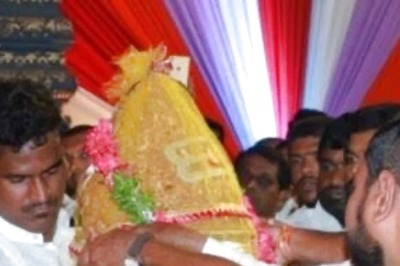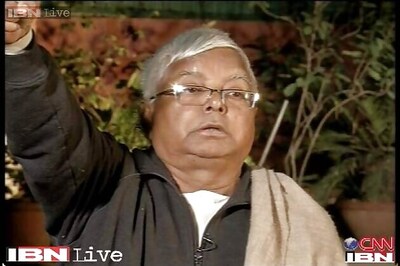
views
New Delhi: In perhaps the highest amount ever allowed in a medical insurance case in India, the National Consumer Commission has awarded around Rs 7 crore to a family in Delhi.
Birla Sun Life Insurance had rejected the claim following the death of Ajay Gupta in December 2010. The insurance firm concluded that the claim ought to be junked since Gupta, 46, reportedly committed suicide by consuming cyanide, thereby nullifying the policy contract.
Gupta, an electrical contractor, was survived by wife and three children. The family subsequently filed a complaint with the National Consumer Commission, arguing there was no proof to show that Gupta took the extreme step and that the preliminary findings recorded by the insurance company's doctor and post mortem report were fallacious.
Taking up the case, the apex consumer forum, presided over by Justice VK Jain, noted that since it is the insurer which seeks to bring the case within the four corners of the exception contained in the insurance policy, the onus was upon the insurer to prove that the deceased died by committing suicide.
While Birla Sun Life did not bring on record an affidavit by its doctor, the Commission further underscored that the post mortem report clearly shows that the finding on the cause of death was kept pending till the receipt of blood and viscera report.
"Thus no opinion as regards the cause of death was given in the post mortem report at the time it was initially prepared on 5.1.2011," said the Commission, further highlighting that it is evident from the viscera report issued by forensic laboratory and the final opinion given by the Department of Forensic Medicine of DDU Hospital that no evidence of consumption of cyanide by Gupta was found.
Justice Jain dismissed a submission by the insurance firm that the police had recovered from Gupta a parcel containing coloured cubes stated to be sodium cyanide, and hence, the presumption was that the death was due to its consumption.
The Commission held: "No evidence of sodium cyanide having been consumed by the deceased has, however, been produced. What the insurer was required to prove is that the deceased had consumed cyanide and that had resulted in his death.
The Viscera report clearly negates consumption of cyanide by the deceased. Therefore, it would be immaterial if the sodium cyanide was found in a plastic container seized by the police during investigation of the case."
The Commission thus allowed the complaint and directed Birla Sun Life to cough up the insured sum of Rs 5 Crore.
It permitted the insurance company to deduct Rs 1.19 Crore towards the payment of taxes but at the same time also granted an interest on the remaining amount of Rs 4.88 Crore.
The Commission asked Birla Sun Life to pay simple interest at the rate of 8 per cent on Rs 4.88 from the time of institution of the complaint in 2013.
The interest would come over Rs 2 Crore, taking the entire sum to be paid to the family close to Rs 7 crore.




















Comments
0 comment